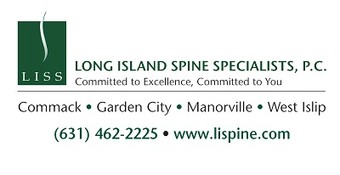|
|

|
« Back
Back Surgery, the Movie--Coming Soon to a Surgeon's Office Near You
|
Posted on: 02/15/2001
|
Back surgery is usually optional. Most of the time, patients weigh the pros and cons and decide whether it will work for them. Down the road, research shows that a group of people who had back surgery fared no better--and no worse--than people who did not.
Patients need to know this kind of information when they are considering back surgery. If patients were well informed about their options, it might affect whether or not they chose surgery. What are the best ways to teach people about the pros and cons of back surgery?
This study was designed to answer those questions. It involved 100 patients who were candidates for a first back surgery. Most of them had a herniated disc. The next most common problems were spinal stenosis and sciatica. Researchers divided the patients into two groups. The control group only received a booklet with back surgery information. The second group received the same booklet plus they had access to an interactive video. The video included a touch-screen so people could pick topics of interest. It also showed interviews with patients who had undergone back surgery, with both good and bad results.
The patients were tested before and after going through their information. In both groups, patients who scored high on the pretest did equally well after getting more information. However, the patients who scored lowest on the pretest had much better scores after watching the video. The low-scoring group was generally older than the group average and included fewer high school graduates.
Patients reported they liked the video better than the booklet. And overall, the video group did slightly better on the test than the control group. The biggest difference was in patients' choices. Patients who watched the video were much less likely to choose surgery. Only 23% of those who watched the video chose surgery, compared to 42% of the group who only got a booklet.
The researchers concluded that the video format was the best educational tool. Patients liked it better and got better test scores after watching the video. But the researchers also acknowledged how giving patients a simple booklet was helpful, even though the booklet might be considered "low-tech."
|
References:
Elizabeth A. Phelan, MD, MS, et al. Helping Patients Decide About Back Surgery: A Randomized Trial of an Interactive Video Program. In Spine. January 15, 2001. Vol. 26. No. 2. Pp 206-212.
|
|
|
« Back
|
|
|
|
*Disclaimer:*The information contained herein is compiled from a variety of sources. It may not be complete or timely. It does not cover all diseases, physical conditions, ailments or treatments. The information should NOT be used in place of visit with your healthcare provider, nor should you disregard the advice of your health care provider because of any information you read in this topic. |
 | All content provided by eORTHOPOD® is a registered trademark of Mosaic Medical Group, L.L.C.. Content is the sole property of Mosaic Medical Group, LLC and used herein by permission. |
|
